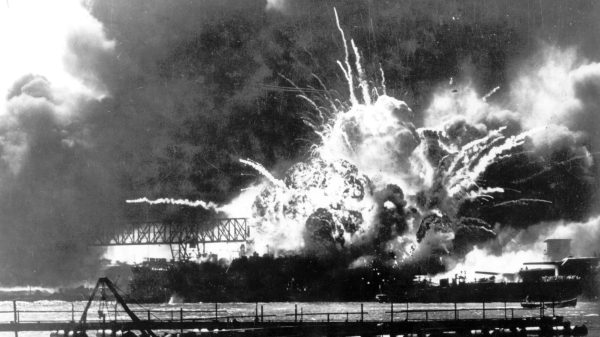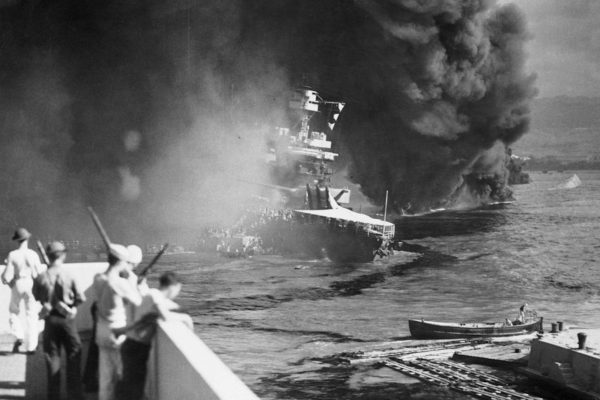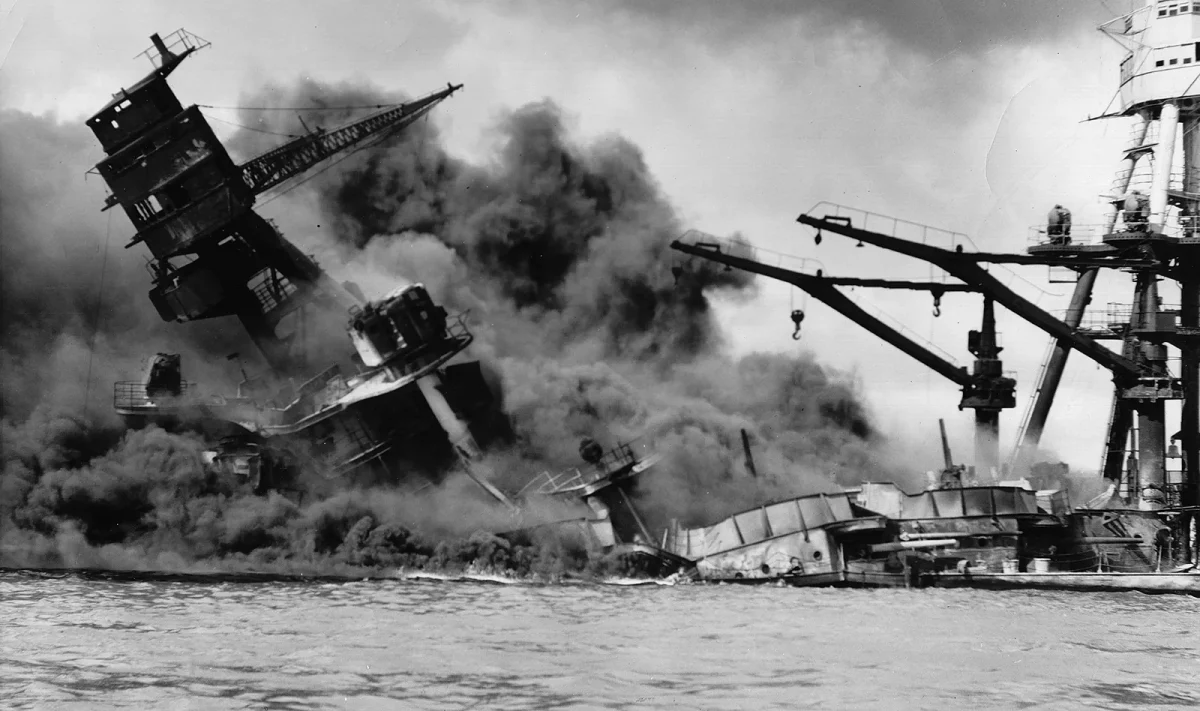The attack on Pearl Harbor was a significant and tragic event in American
history, marking the United States entry into World War ll. On the morning of
December 7, 1941, the Japanese Imperial Navy launched a surprise military
strike on the U.S. naval base at Pearl Harbor, Hawaii. This meticulously
planned assault aimed to neutralize the U.S. Pacific Fleet, thereby
preventing American interference in Japan’s expansionist goals in Southeast
Asia.
The attack began just before 8:00 a.m. Hawaiian time. In two waves,
approximately 353 Japanese aircraft, including bombers, torpedo planes, and
fighters, descended upon the unsuspecting base. The results were devastating.
Eight U.S. battleships were damaged, with four being sunk. Additionally, three
cruisers, three destroyers, and numerous other vessels were either damaged or
destroyed. The attack also saw the destruction of 188 U.S. aircraft. However
the most tragic toll was the loss of life: over 2,400 Americans were killed, and
around 1,000 were wounded.
The attack on Pearl Harbor had far-reaching consequences. On December 8,
1941, President Franklin D. Roosevelt addressed a joint session of Congress,
famously declaring December 7th as “a date which will live in infamy.”
Congress responded with a near-unanimous vote to declare war on Japan,
signaling the United States’ official entry into World War II. This declaration
was soon followed by declarations of war against the U.S. by Germany and
Italy, drawing America into a global conflict on multiple fronts.
Strategically, the attack on Pearl Harbor had mixed results for Japan. While
the immediate objective of crippling the U.S. Pacific Fleet was achieved, the
long-term consequences were less favorable. Key American assets, such as
aircraft carriers, were not present at the base during the attack and thus
remained intact. Furthermore, the attack galvanized American public opinion,
transforming isolationist sentiments into a unified resolve to defeat the Axis
powers. The U.S. industrial and military mobilization that followed was
unprecedented, leading to significant advancements in technology and production capabilities.
In retrospect, the attack on Pearl Harbor stands as a stark reminder of the
perils of unpreparedness and the impact of strategic surprise. It also serves as
a testament to the resilience and determination on the American people, who,
in the face of adversity, rallied to defend their nation and ultimately
contributed to the Allied victory in World War II. The memory of Pearl Harbor
continues to be honored through memorials and educational efforts, ensuring
that the lessons learned from this pivotal event are
not forgotten.
Https://www.pealharbortours.com
Https://www.nationalww2museum.org.war.articles
Https://www.nps.gov.valr

